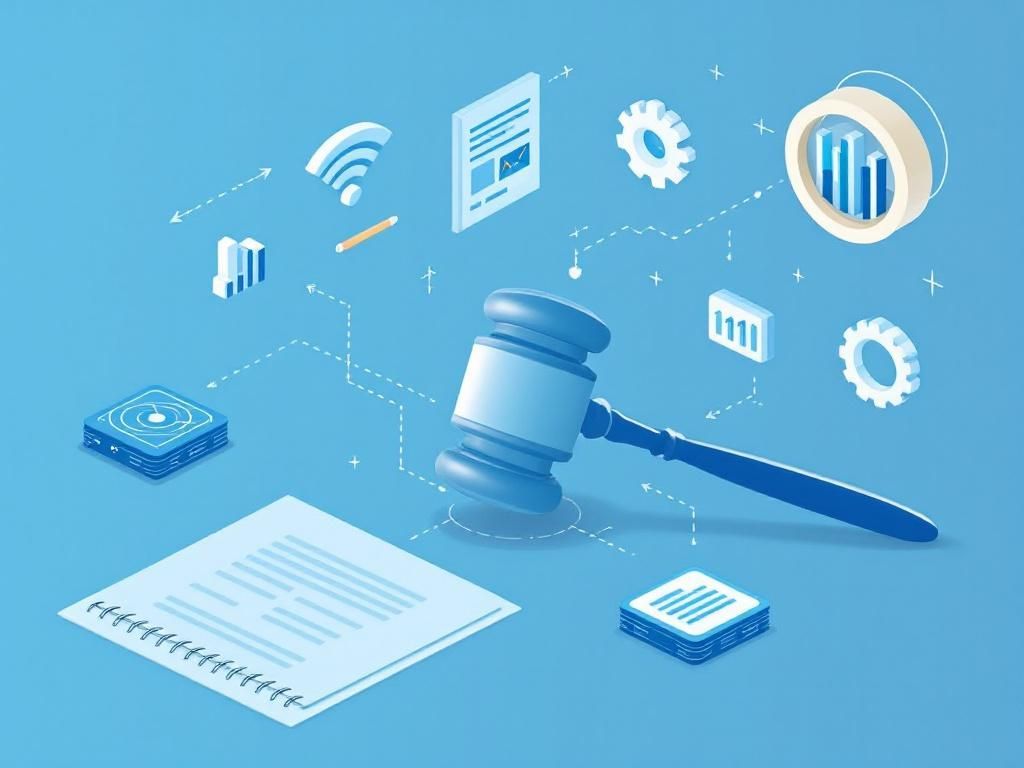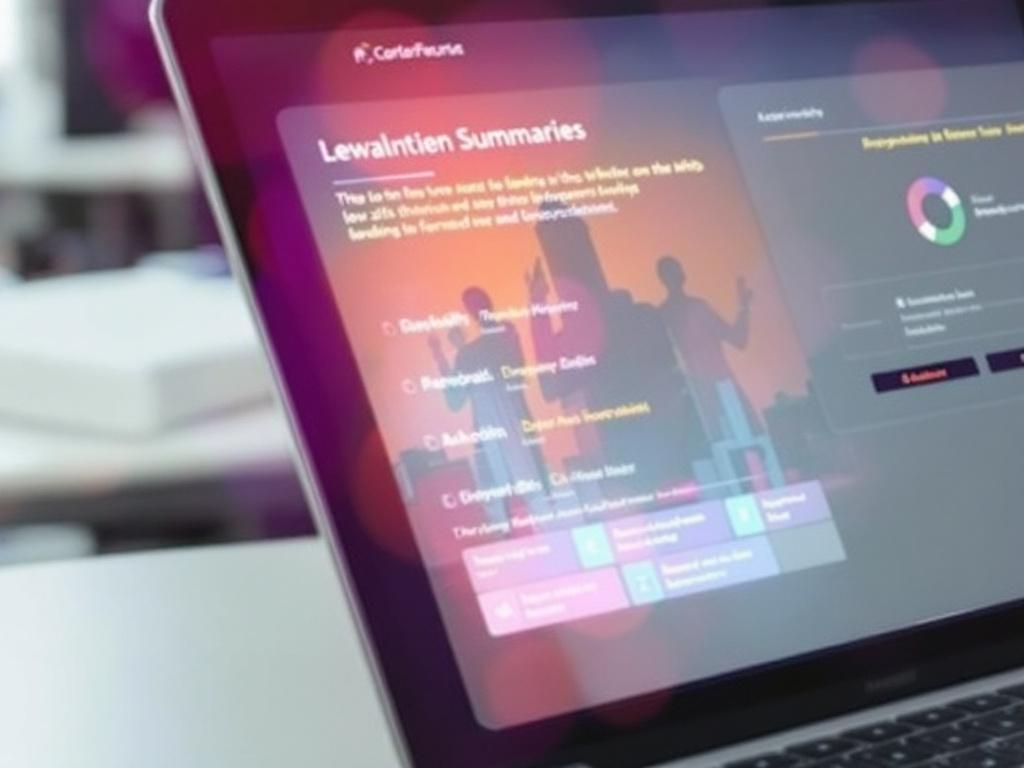In the fast-evolving landscape of legal technology, artificial intelligence (AI) tools are revolutionizing the way legal professionals analyze documents. From contract review to case law research, these tools streamline processes, reduce human error, and enhance efficiency. As law firms and legal departments increasingly adopt these technologies, understanding the best AI tools available is essential for staying competitive. This article explores some of the top AI tools for legal document analysis, detailing their features, benefits, and applications.
Understanding AI in Legal Document Analysis
AI technologies are designed to mimic human intelligence and improve decision-making processes. In the realm of legal document analysis, AI can perform tasks such as:
- Identifying relevant documents
- Extracting key information
- Analyzing contract language
- Predicting litigation outcomes
These capabilities are powered by advanced machine learning algorithms, natural language processing (NLP), and data analytics.
Key Features of AI Legal Document Analysis Tools
When evaluating AI tools for legal document analysis, consider the following key features:
- Natural Language Processing: The ability to interpret and analyze human language, which is crucial for understanding legal texts.
- Machine Learning: Tools that improve over time by learning from data, enhancing their accuracy and efficiency.
- Document Comparison: Features that allow users to compare contracts and documents side-by-side to identify discrepancies.
- Compliance Checking: Automated checks to ensure documents adhere to relevant laws and regulations.
- Collaboration Tools: Features that enable multiple users to work on the same document, facilitating teamwork.
Top AI Tools for Legal Document Analysis
1. Kira Systems
Kira Systems is a leading AI-powered due diligence and contract analysis tool. It is designed to help legal professionals extract and analyze data from contracts efficiently.
Features:
- Machine learning technology for document analysis
- Customizable data extraction templates
- Collaboration features for teams
Benefits:
Kira allows law firms to reduce the time spent on document review, thereby lowering costs and increasing billable hours. Its ability to learn from previous documents enhances its performance over time.
2. LawGeex
LawGeex automates the contract review process using AI algorithms that assess contracts against a defined set of legal standards.
Features:
- Automated contract review
- Risk assessment and compliance checks
- User-friendly interface
Benefits:
LawGeex helps legal teams identify potential issues quickly, significantly speeding up the review process while ensuring compliance with applicable laws.
3. ROSS Intelligence
ROSS Intelligence utilizes AI to assist in legal research, allowing lawyers to find relevant case law and statutes efficiently.
Features:
- Natural language search capabilities
- Real-time legal analysis
- Comprehensive legal database
Benefits:
This tool enhances the research process by enabling lawyers to ask questions in plain English and receive relevant legal insights tailored to their needs.
4. eBrevia
eBrevia is an AI tool designed for contract analytics and review, focusing on efficiency and accuracy in document analysis.
Features:
- Data extraction from contracts
- Document tagging and organization
- Integration with document management systems
Benefits:
eBrevia streamlines contract review processes, reducing turnaround times and allowing legal teams to focus on strategic decision-making instead of manual document analysis.
5. LegalSifter
LegalSifter combines AI with human expertise to provide contract review services that help lawyers analyze documents effectively.
Features:
- Contracts reviewed by AI and experienced lawyers
- Real-time feedback on contract terms
- User-friendly dashboard
Benefits:
This hybrid approach not only speeds up the review process but also ensures that the output is reliable, allowing legal professionals to make informed decisions.
Evaluating AI Tools: Factors to Consider
When selecting an AI tool for legal document analysis, consider the following factors:
- Scalability: The tool should be able to grow with your firm’s needs.
- Cost: Assess whether the investment aligns with your budget and expected return on investment.
- Integration: Check if the AI tool can integrate with existing software systems.
- User Experience: A user-friendly interface can significantly impact adoption and efficiency.
- Support & Training: Ensure that the provider offers adequate training and support for the tool.
Future of AI in Legal Document Analysis
The future of AI in legal document analysis holds great promise. Innovations in machine learning and NLP are expected to enhance the capabilities of existing tools further. Potential developments could include:
- More accurate predictive analytics
- Greater integration with blockchain technology for secure document handling
- Advanced customization options for specific legal needs
As the legal industry continues to embrace AI, staying abreast of these changes will be crucial for law firms and legal professionals alike.
Conclusion
AI tools for legal document analysis are transforming the landscape of legal work, enabling firms to work more efficiently and accurately. By selecting the right tools, legal professionals can not only improve productivity but also enhance the quality of their legal services. As technology continues to evolve, staying informed about the latest advancements will be essential for success in the legal field.
FAQ
What are AI tools for legal document analysis?
AI tools for legal document analysis are software applications that utilize artificial intelligence to automate and enhance the review, drafting, and management of legal documents.
How can AI tools improve legal document analysis?
AI tools can improve legal document analysis by increasing efficiency, reducing human error, and providing insights through data analytics, making the review process faster and more accurate.
What features should I look for in AI legal document analysis tools?
Key features to look for include natural language processing, machine learning capabilities, contract comparison, clause extraction, and integration with existing legal management systems.
Are there any popular AI tools for legal document analysis?
Yes, popular AI tools include Kira Systems, LawGeex, eBrevia, and Luminance, each offering unique features tailored to legal professionals.
Is AI legal document analysis suitable for all types of law firms?
Yes, AI legal document analysis tools can be beneficial for law firms of all sizes, from solo practitioners to large firms, by streamlining processes and enhancing productivity.
What are the benefits of using AI tools for legal document analysis?
Benefits include time savings, cost reduction, improved accuracy, enhanced compliance, and the ability to focus on more strategic legal tasks rather than routine document review.




